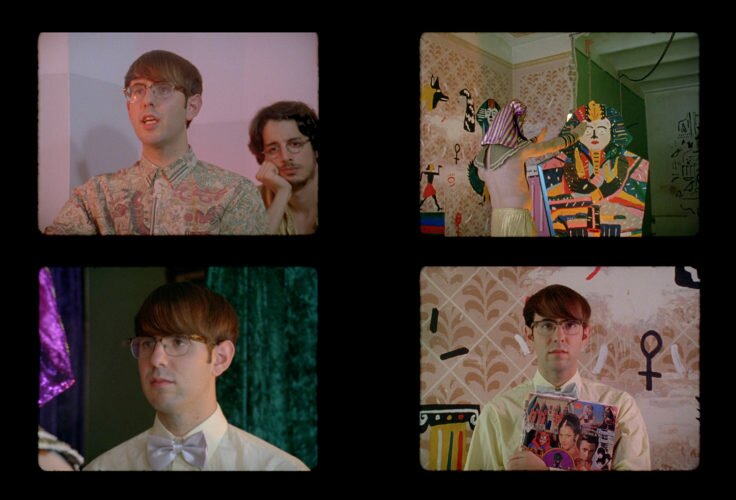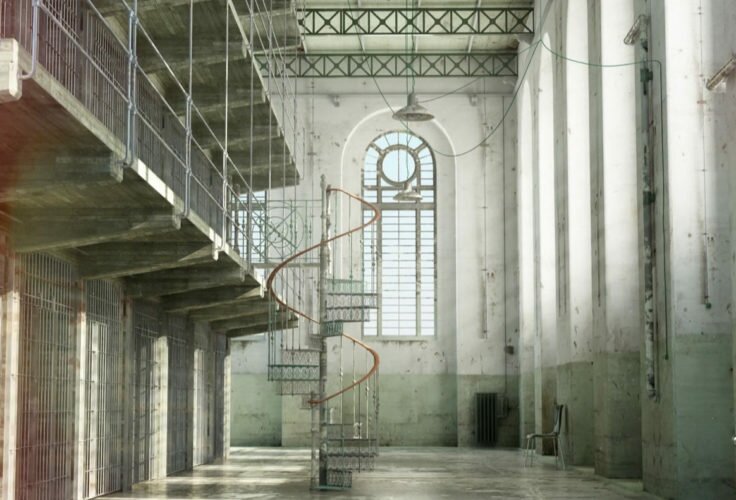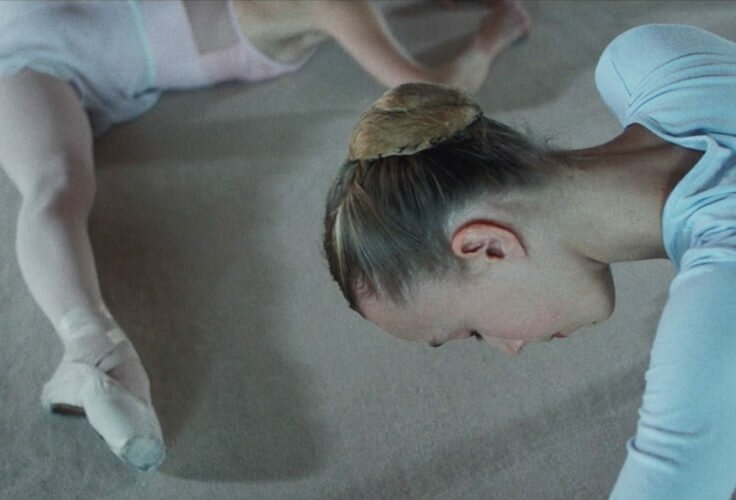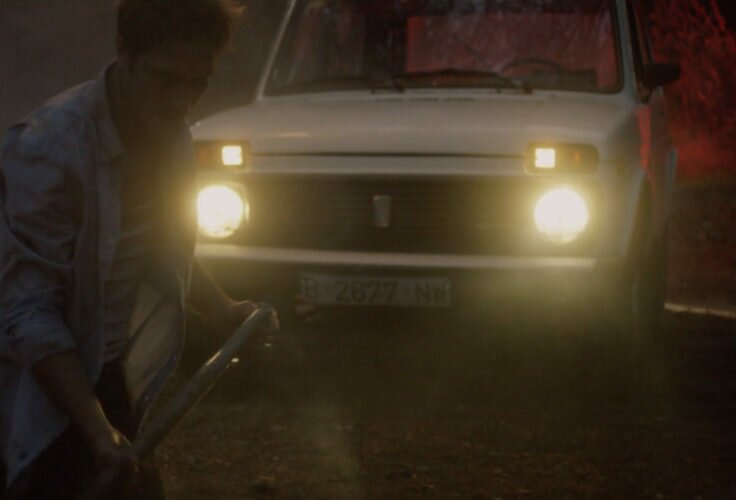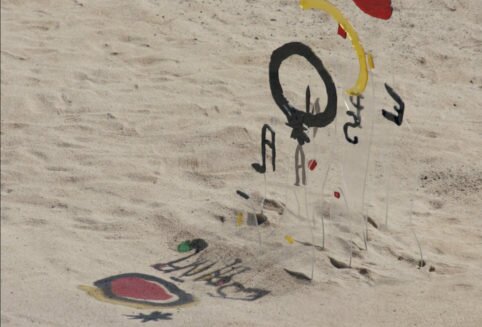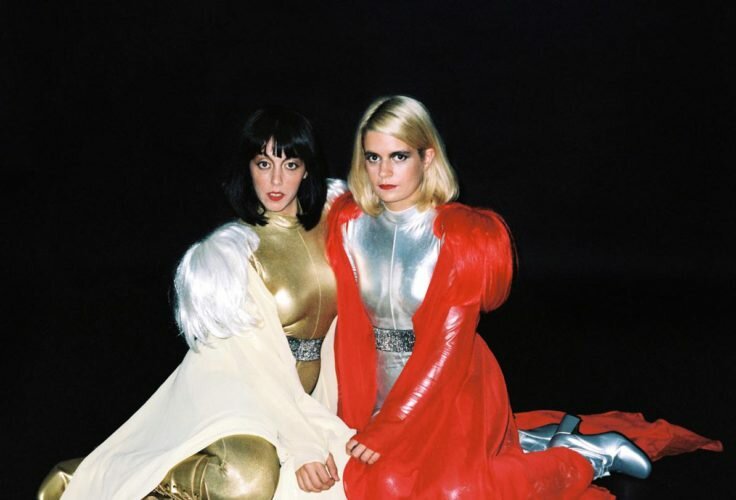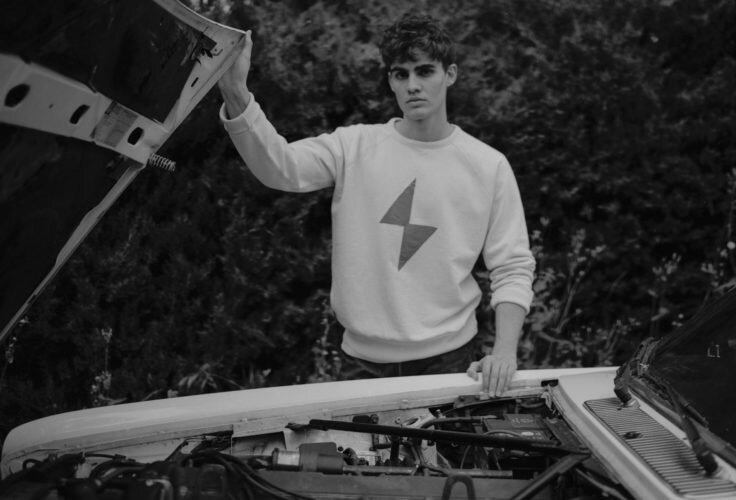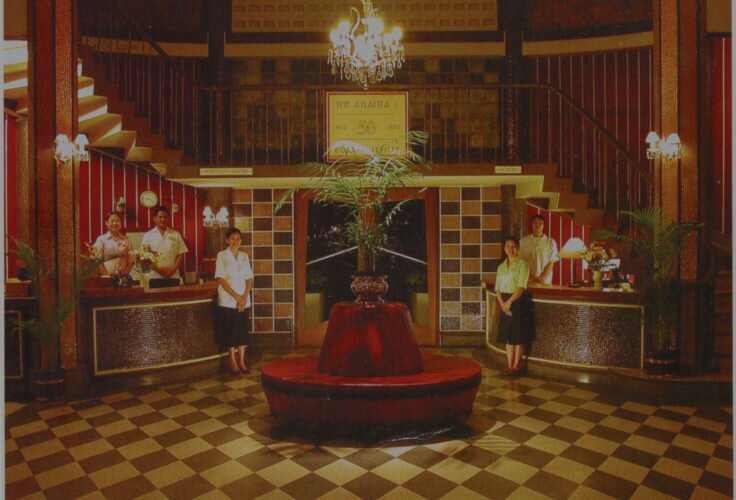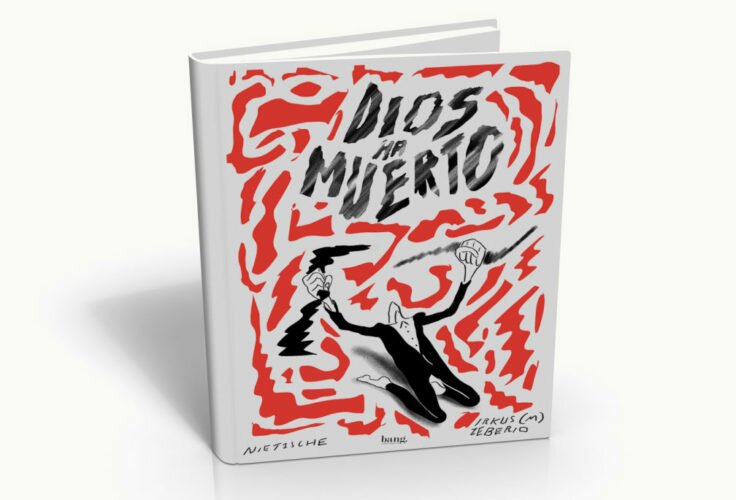Ignacio Julià fights with the TV remote: he’s sick of images appearing “optimised.” That’s to say: flattened, enlarged, deformed, cut…
Christopher Walken
and inexistence
By Ignacio Julià

Illustration by Juaco
There’s in Heaven’s Gate, Michael Cimino’s epic and commercially catastrophic western, which manages to distil the magic that sometimes, in dribs and drabs, we can get from Christopher Walken. His character, a gunman employed by landowners who has some doubts regarding the immigrant killing these are planning, visits the sweet prostitute interpreted by Isabelle Huppert. Exhausted, he sits down on the thick bed without taking his coat or hat off and for some imperceptible seconds, falls asleep without her noticing. The brief dizzy spell confirms that his interest is not only sexual, but also sentimental, stripping bare the rude mercenary full of testosterone, splitting character and interpreter into a rich ambiguity. As a critic wrote, after seeing him on stage, his virtue resides in “the delicacy of a very masculine man.” It’s the exact measurement of an actor whose Stakhanovism and tendency towards typecasting could hide an unrepeatable idiosyncrasy. Walken is, and proud of it, what they call a character actor whose supporting roles might outshine any main star and who deserves to receive honorary awards like the Sitges one.
It happens in The Hunter, Cimino’s previous film, the of which, with its busy Russian roulette, offers us one of the most disturbing faces ever. It belongs to the helpless Vietnam veteran who accompanies the determined alpha male played by Robert De Niro. Addicted to heroin and to the adrenaline rush of the imminent shot, an alienated Walken, bloody red bandana tied around his head, is placed in a cracking close-up and literally vanishes. It is no longer he, but a spectre of him close to inexistence, and this alienation becomes disturbing, menacing. The vast filmography of this NY actor isn’t too full of such miracles since, as the pragmatic character actor he is, he boasts about never rejecting a part, no matter how terrible the script and finally the film. Another of those scarce moments of immaterial transcendence would be the end of Abel Ferrara’s King of New York, when the mobster he plays dies because of the injuries received inside a taxi in the middle of Times Square. The subtle fall of his hand indicates he’s died.
However, it’s another more effervescent and popular Christopher Walken who has become in the late years a laughable icon imitated by a legion of clones, from US TV famous late shows to the clumsiest of YouTube infiltrators. There was a theatre antecedent: All About Walken, by comedian Patrick O’Sullivan, with seven Christopher Walkens on the stage of a small Sunset Boulevard playhouse. Two of them were women, one a Chinese man and another a Philippine man, the latter impersonating Colin Farrell imitating Walken: an apparently immutable being becomes polyhedral.
The epitome of the tough and viscous guy, his intermittent way of talking is easy to imitate. “I use punctuation, but end the sentences not placing the full stop necessarily where other people would,” he’s said. “I think everybody should talk as they please. To me, rhythm is very important. I think we express ourselves as much with rhythm as with words themselves. It’s not about what you say, but how you say it.” That’s the reason why he likes studying two different scripts at the same time, endlessly repeating his lines, looking for new inflections, other enunciations, a distance with the material through which he appropriates the written word. When that process comes to an end and shooting time arrives, each of his sentences already carry subtexts, arrhythmias, nuances, emphasis, meanings, twisted senses, etc. Luckily, the bunch of Walken impersonators is reduced to English-speaking fellows. Kevin Spacey is amazing at it.
And all this joking around finally makes sense. Despite having been typecast as a wicked villain -and as an out of this world being: from his paranormal role in David Cronenberg’s adaptation of Stephen King, The Dead Zone, he’d move on to B-movie saga The Prophecy, the first film of which dates back from 1995 and ended up going straight to video club shelves-, the truth is that Walken always preferred comedies. Good proof of that is his condition as recurring Saturday Night Live collaborator, where he even shared a sketch with many of his impersonators. It’s not strange learning that his favourite line ever is the one opening Hamlet: “Who’s there?” As he puts it: “It’s brief, mysterious, it’s full of possibilities.”
Born Ronald Walken in Queens, in 1943, of immigrant parents -Scottish mum, German baker dad-, he debuted at ten as an extra in Dean Martin and Jerry Lewis’ TV show. Some words with the latter turned on his vocation. He wanted to study dance, but upon getting a small role in a Broadway musical, the actor won. It was 1963, but it wouldn’t be until 1975 and Annie Hall, the work with which Woody Allen finally made it, that his scrawny figure and angled and transparent face, with his half-closed eyes, showed up, in the role of loony brother of Diane Keaton. Three years after that he’d be awarded the Oscar for best supporting role in The Hunter, where he galvanised monsters such as De Niro and Meryl Streep, predicting a bright career.
It hasn’t been quite so, mainly because of his stuck in his ways character, devoid of any artistic pretensions. His personal life is far from eccentric; his method despises the obsessive research employed by other actors from his generation. He’s been married to his wife, Georgianne, since 1969; they live in Connecticut, but own a flat in New York and a summerhouse in Rhode Island. He likes his days orderly and fruitful, he mows the lawn and is a good cook -of fish, chicken or vegetables; he’s a big fan of the Mediterranean diet-, he listens to his idol, Elvis Presley, or watches zombie films. He doesn’t use a computer, mobile phone or watch; is afraid of car speeding. Doesn’t smoke since his thirties; doesn’t drink liqueur, only wine; and hates guns. Maybe that’s why the job as an actor is a playful occasion to escape and go back home to for this man of strangely erect and spiky hair. “I’ve done films no one has seen,” he affirms, not even remotely ashamed. “I’ve done films I haven’t even seen myself. I like doing them for different reasons. Sometimes because of the people in them. Other times because I play the part really well. Others because of the setting. And others, for the dosh.”
The stereotype is not a problem. In fact, for years it seems all he does is regurgitating the unforgettable scenes filmed by Quentin Tarantino -the hilarious interrogation and execution of Dennis Hopper in True Romance, and the scene of veteran Captain Koons, who kept the watch of his colleague, dead in Vietnam, by sticking it up his ass in Pulp Fiction-, that when he’s not involved in inane or insane comedies, or other types that take advantage of his cold villain profile, like Stand Up Guys, with Al Pacino, or Seven Psychopaths, in which he shares the screen with Tom Waits, who’s just as bad. He considers himself a serious person, likes saving money and keeping the house clean. He dislikes the unknown or the unexpected, yet he agrees that the surprise factor is an essential condiment for an actor, in his case, that characteristic presence, between calm and sullen. “There’s something dangerous, unpleasant and disconcerting in funny things,” he reasons. “A connection between the comic and the disturbing. They say that human smile is something primitive; that its purpose is really showing our teeth; it’s a warning. When we smile, in a primary way, we feel afraid.”
Unless our smile becomes a mixture of astonishment and admiration the first time we see him dancing, his initial vocation. This is how he did it on musical Pennies from Heaven‘s , written by Dennis Potter and directed by Herbert Ross, where he plays the part of the dancing thug whom, when the time comes, jumps on the club’s bar to perform a striptease which concludes with a memorable tap dancing session. His volatile skill became universal after starring in Fatboy Slim’s music video for , directed by Spike Jonze, where he suddenly subverted gravity and started flying, weightless, immaterial… inexistent?
“Emotional power is probably the most valuable thing an actor can have,” he has said. The way in which Christopher Walken saves it, juxtaposes it, dismembers it and liberates it… is so singular that it has already become… a style… in it… self.



